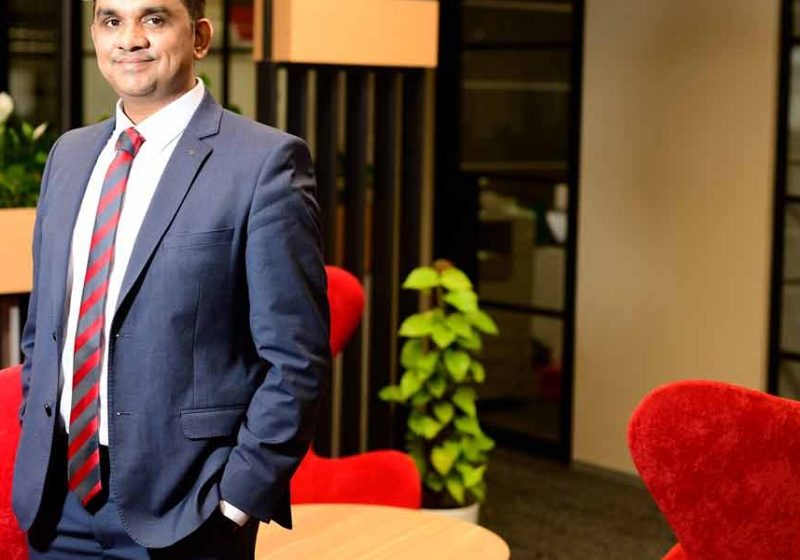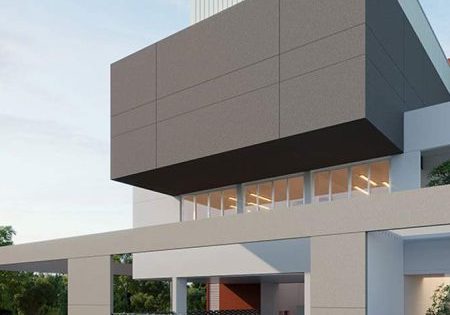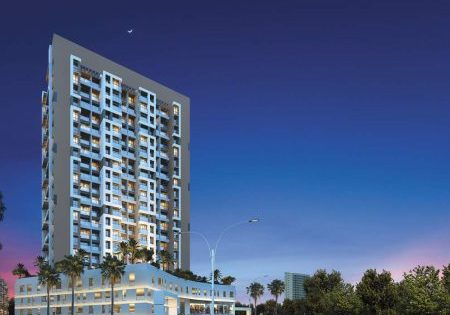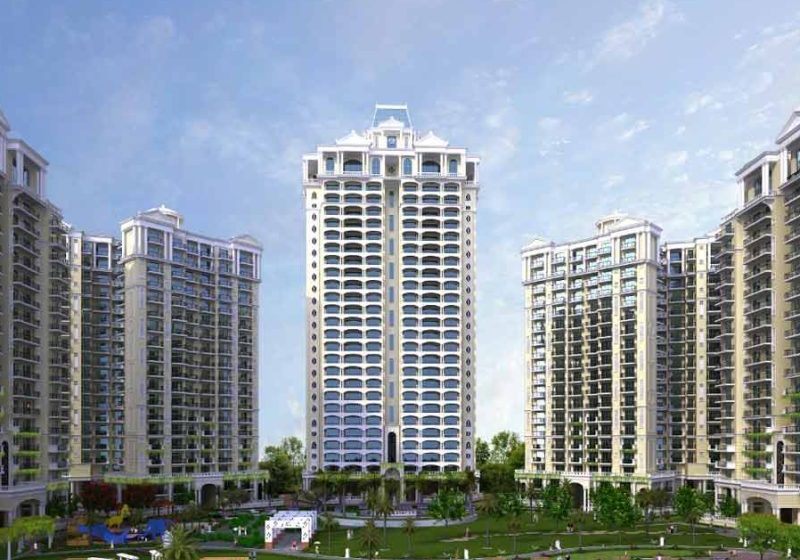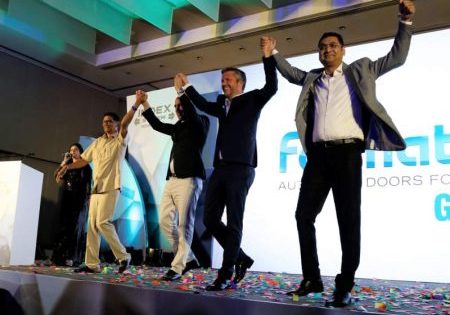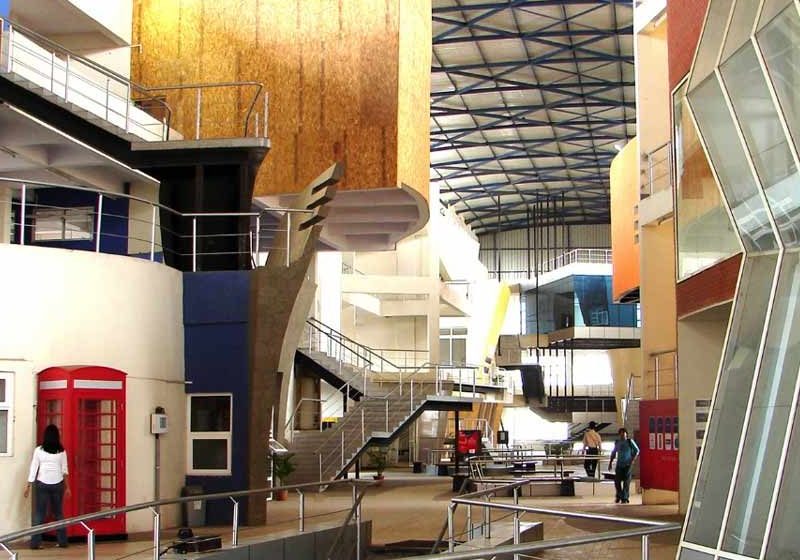P. Abey George (PAG), general manager, Tecno Doors Pvt. Ltd., Fermator, converses with your author (SSP) on recent developments and their implications at the IEE Expo.
SSP: What are the recent India-specific developments at Fermator?
PAG: In terms of new things, we have a new plant coming up in Ahmedabad, and we want to be focused regionally. By only running our plant in Chennai, we might run out of capacity in one year. Product-wise, we have many variants that are new to the Indian market, like underdriven operators and different finishes we are now able to give. The product strategy has been changed in the sense that now it is more local, for Indian needs, as both product design and development are now done in India with, of course, corporation support. With this exhibition (International Elevator and Escalator [IEE] Expo, p. 38), we are expecting that more people will come to the factory. And, once we have them in the factory, we are sure that they will be impressed, and we can convert them into customers.
Given the competitive nature of the industry, we must be locally present. Ten years back, that meant India; now, it means parts of India.
We are here for the long term, because we are now going to have another factory and, maybe five years down the line, another one. And, we expect the market to grow. We have grown a lot, and we have grown more than what the elevator market is growing; we are getting customers and volumes.
SSP: What are the expectations for the new plant?
PAG: At the current plant, we will run out of capacity in the next one to one-and-a-half years. As a policy, we do not load the plant above 80%, and on-time delivery is important. So, the new plant will have to pitch in when we are in the next phase of growth. We are growing at 20-23%. Given the competitive nature of the industry, we must be locally present. Ten years back, that meant India; now, it means parts of India. So, this plant is there for north and west India.
The problem is that nobody owns the elevator — neither the purchaser, nor the user.
SSP: How has the market for elevators in India been changing?
PAG: One of the things we think the market is doing is that now people sell elevators on a cost basis. So, it’s only a price market, and everyone wants a cheaper product. But, there will be a time when the strategy will change. If there is a drop in prices and rising volumes, anyone will do that. But, there will come a time when it’s rock bottom. From there, we will look at quality and safety. There are many manufacturers who are not concerned about safety. As an industry, this has to change.
With lots of policy changes coming and elevator accidents becoming frontpage news and customers becoming demanding, there is a limit to which features we can offer free of cost. Now, when a customer wants a new feature, we allow it to go free of cost because of competition. But that has to stop. And, as the industry matures, that will stop, for sure. And, at that time, the multinationals will have an advantage.
SSP: How is Fermator positioned to deal with the new norms in the Real Estate (Regulation and Development) Act, 2016 (RERA) era?
PAG: The strategy we used when we came in was not to offer what is required in the market, but to always keep it higher than that. Some of the features are there by default. For example, fire rating was there for almost all our doors, except some glass doors. As a policy, these features are normal. And, for us to make that feature is not so expensive, because it’s a habit. Any door made here is fire rated. Even if the customer says they don’t want fire rating, we still give it. If you don’t want it, we just don’t give the certificate, but the door is still fire rated. So, these things have become more and more important.
Plus, high rises have started to come up. In a city like Mumbai, there is no other direction to go. Because of that, our product, which is for the high rise as well, will have a good scope. We stand a better chance, because it is certified, we don’t have to do anything different and we have experience in handling these kinds of projects. So, these are the things that will hold us in good stead in the long run. We are also prepared for the new norms coming in. We are not panicking, as we knew they were coming, and we were already prepared five years back.
If the elevator has an accident, a designer finish won’t save you.
SSP: Why and how should safety aspects be made a priority among elevator buyers and users?
PAG: Elevators are dangerous. If you don’t handle them well, they will fail. The problem is that nobody owns the elevator — neither the purchaser, nor the user. It is not like a car or a bike — nobody says they own it. So, that is the problem. The builders also buy the cheapest, hand it over and walk away. Any elevator will run for one year. After that, it starts creating problems. Then, it is handled by the societies that have no knowledge or clue about how it works.
Another way the industry must mature is from being only price conscious to focusing on safety and other features. For example, in the car industry, there was a time when air-conditioning was an option, but now, it’s a comfort feature, and even airbags are compulsory. Such things will also happen to the elevator industry. At least, on safety, it should happen.
SSP: How do you see the elevator industry in India shaping up going forward?
PAG: In our opinion, the industry will grow at about 7-8%, and the big four or five will continue. There will be a shakeout due to the new norms and rules. Those who are good and those who are conversant with the safety norms will survive. Safety is not a fancy feature, so we must get to that first before we get to the mirrors, glasses and designer finishes. If the elevator has an accident, a designer finish won’t save you.
So, basic-level stuff that many manufacturers are doing is required, but I hear that nobody is willing to pay. There will be a time when it must be paid. Safety doesn’t come free; nothing comes free. So, taking care of safety is a step in the right direction. Smaller companies use aesthetics to sell, but you can only sell one or two elevators on aesthetics.
SSP: What are the future plans and prospects for Fermator in India?
PAG: We expect to grow in India comparatively more than the market. We will focus more on markets of tier-2 and -3 cities. Of course, the big cities are also growing. Even the public-transportation industry is growing, and this is needed. We should also look at the South Asian Association for Regional Cooperation countries. As a brand, we have been here for 40 years. We have also been acquiring companies, but not under the Fermator brand.
RERA and the Goods & Services Tax are a step in the right direction. These are the initial pangs: we are not used to it, so we get confused.
RERA and the Goods & Services Tax are a step in the right direction. These are the initial pangs: we are not used to it, so we get confused. But, these don’t make a difference to us. We don’t believe in circumventing taxes.
The coronavirus outbreak is, in fact, an advantage to the Indian market. But, then, our supply chain will get affected in about two months. So that gives us a push to start localizing. We are much better than China in some products, but culturally, we cannot work like the Chinese. We cannot build a road through somebody’s house. Some may say it’s a weakness of the country, but I say it is good for human rights. We cannot destroy someone’s house just because we want to produce more elevators.
Fermator India is independent in its operations. In terms of volume, we are the second-largest. So, the challenges are that we are running out of capacity. We are taking care of it, but we still have a long way to go.
Get more of Elevator World. Sign up for our free e-newsletter.


